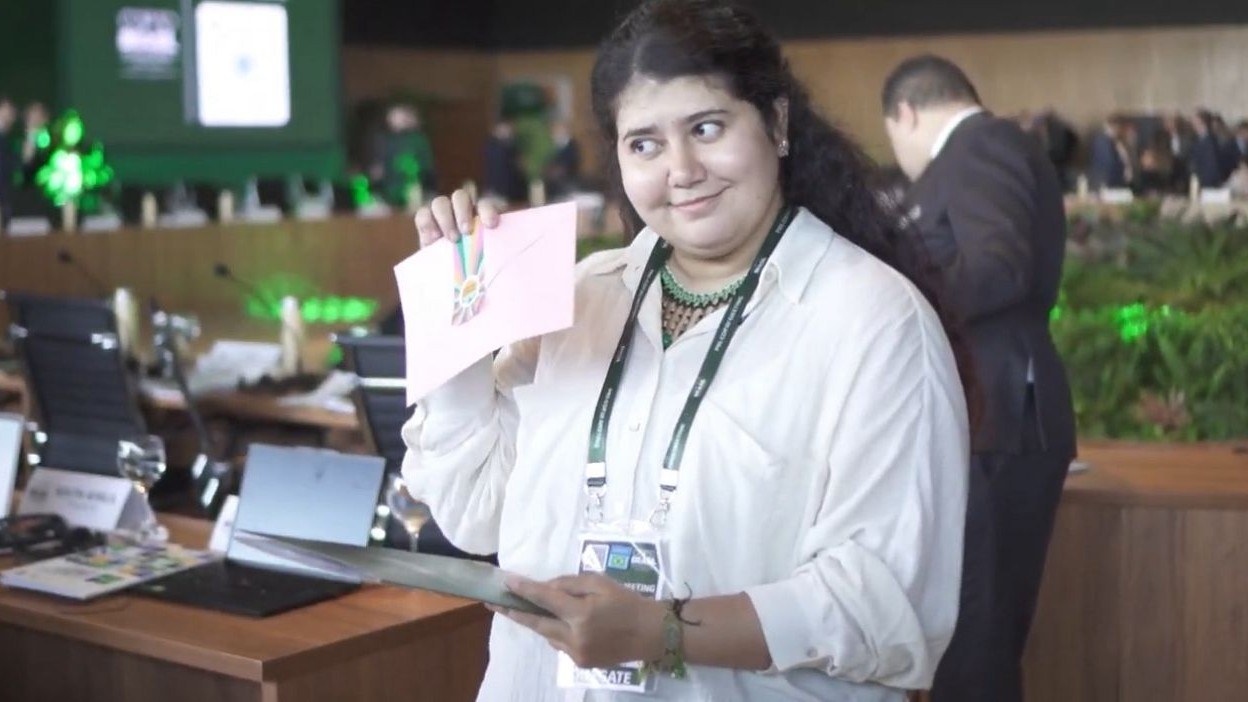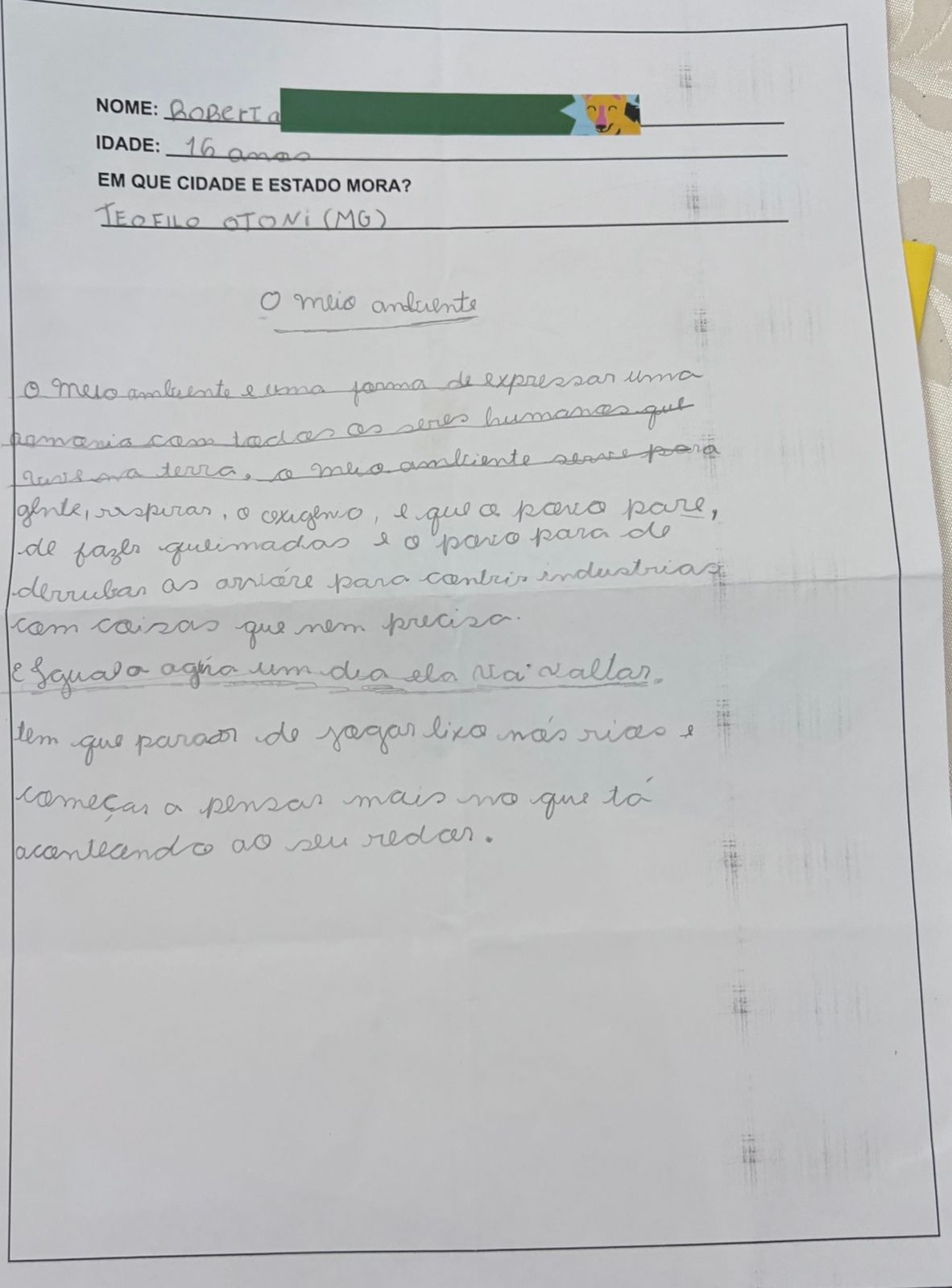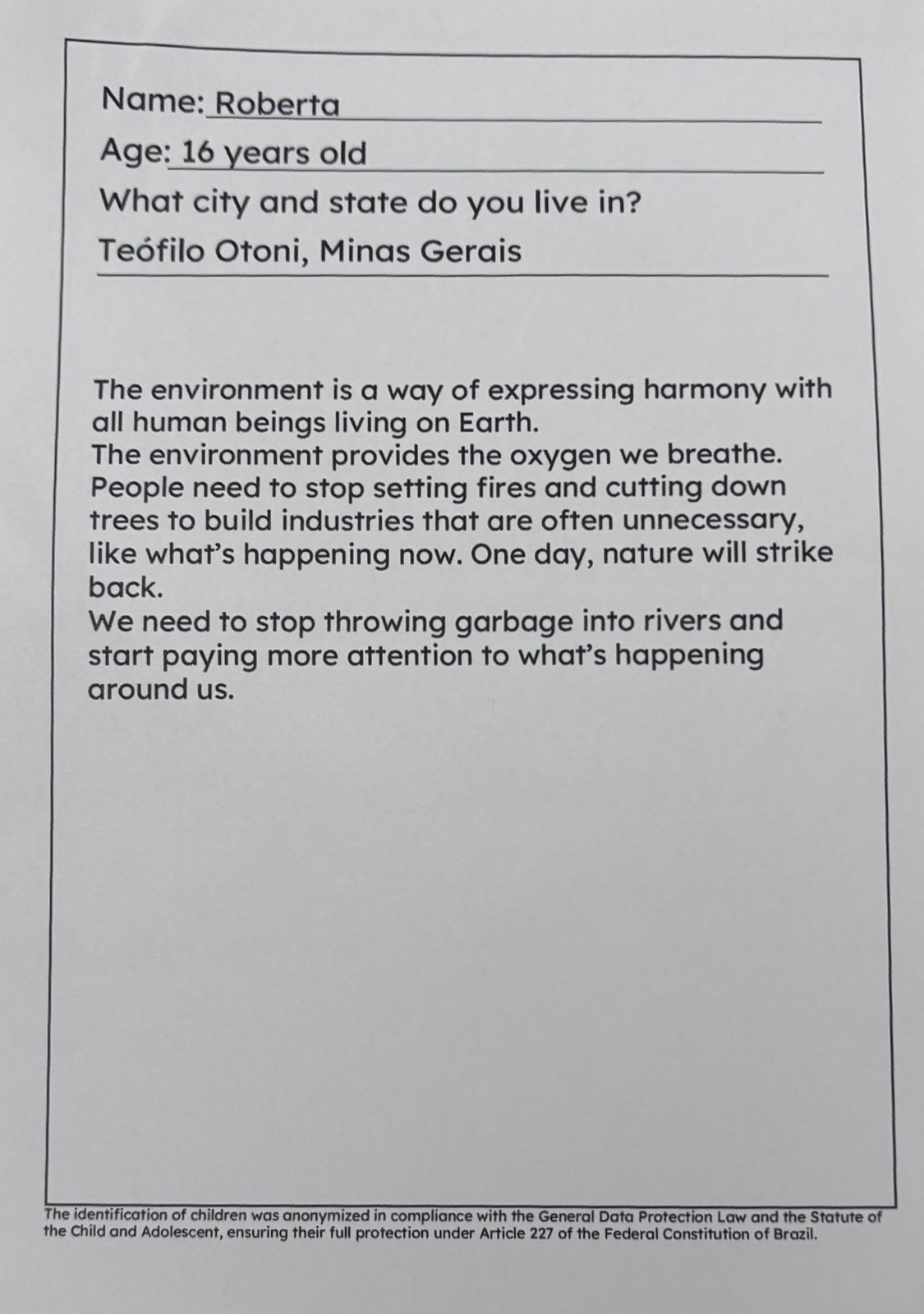"Save our world": children and teenagers make an urgent request of leaders at the Pre-COP
In the spirit of a global mutirão (collective effort), 600 letters from children and teenagers across Brazil were delivered to negotiators during the COP30 preparatory meeting (Pre-COP) in Brasília

By Inez Mustafa | COP30
On the first day of the Pre-COP in Brasília, October 14, ministers, negotiators, and observers from around the world were greeted with urgent messages from those who will most acutely face the consequences of climate change: children. The COP30 Presidency, in collaboration with the Instituto Alana and the United Nations Children’s Fund (UNICEF), delivered to the delegates 600 of the 1,600 letters written by Brazilian youth—a symbolic act giving voice and face to the future at stake in the negotiations.
In his welcome letter to the delegates, COP30 President Ambassador André Corrêa do Lago stressed that the initiative was not merely symbolic, but a call to concrete action. He noted that the messages result from a process of civil society mobilization, reminding negotiators that these children and teenagers will live longest with the consequences of the decisions made during the Pre-COP and COP30.
“Children are part of the solution and stand with us in this collective effort. It is up to us, global leaders, to honor that trust by turning their words into concrete commitments capable of ensuring climate ambition and hope for generations to come,” concluded Ambassador Corrêa do Lago.
International delegations warmly received the message. Ms. Xiomara Acevedo, from the Panamanian delegation, said the letters serve as a reminder of the need for environmental protection. For her, “the best way to guarantee a future for the next generations is to act now—with climate justice, gender justice, and intergenerational equity.”
Listening process
The listening and mobilization process that resulted in the letters was carried out by the Instituto Alana, in partnership with UNICEF, gathering messages and drawings from children and adolescents in ten Brazilian states and the Federal District. The letters tell how the climate crisis already affects their communities and include direct, heartfelt appeals to global leaders.
“The environment is a way of expressing harmony with all human beings who live on Earth,” wrote Roberta, 16, from Minas Gerais. “I don’t want there to be deforestation. I don’t want there to be pollution,” said Pedro, 9, also from Minas Gerais. “Brazil is one of the countries most vulnerable to climate change—the trend is toward complete collapse. To love is to preserve,” warned Gustavo, 16, from Pará. “At this COP30, I hope there will be discussions about behavioral change, raising awareness about global warming to create a better world,” wrote Valentina, 14, from Pará.


The Climate Mutirão and the Ambassadors of the Future
The action materializes the concept of mutirão—a collective effort—promoted by the COP30 Presidency for the 30th United Nations Climate Change Conference. For Ambassador Corrêa do Lago, the mutirão represents the need to unite “all hands and all generations” to face the climate crisis.
Mr. J.P. Amaral, Nature Manager at the Instituto Alana, explained: “These letters show how the climate agenda already shapes the thinking of children and teenagers and brings the mutirão spirit necessary for multilateralism.” He added that the letters reflect the awareness of new generations and the hope that should guide negotiations.
Mr. Danilo Moura, a Climate Change Specialist at UNICEF Brazil, emphasized the importance of including children’s perspectives in decision-making processes. “Since they are the most affected, we brought these letters so that Pre-COP decisions are grounded in the principle of intergenerational justice,” he said, adding that it is essential to keep the children’s appeals in mind throughout the discussions.
COP30 will take place in Belém (PA) from November 10 to 21, 2025, and the hope is that the calls voiced in these 1,600 letters will echo through the negotiation rooms, reminding everyone what is truly at stake: children’s right to a sustainable planet.
English version: Trad. Bárbara Menezes.
Proofreading by Enrique Villamil.
